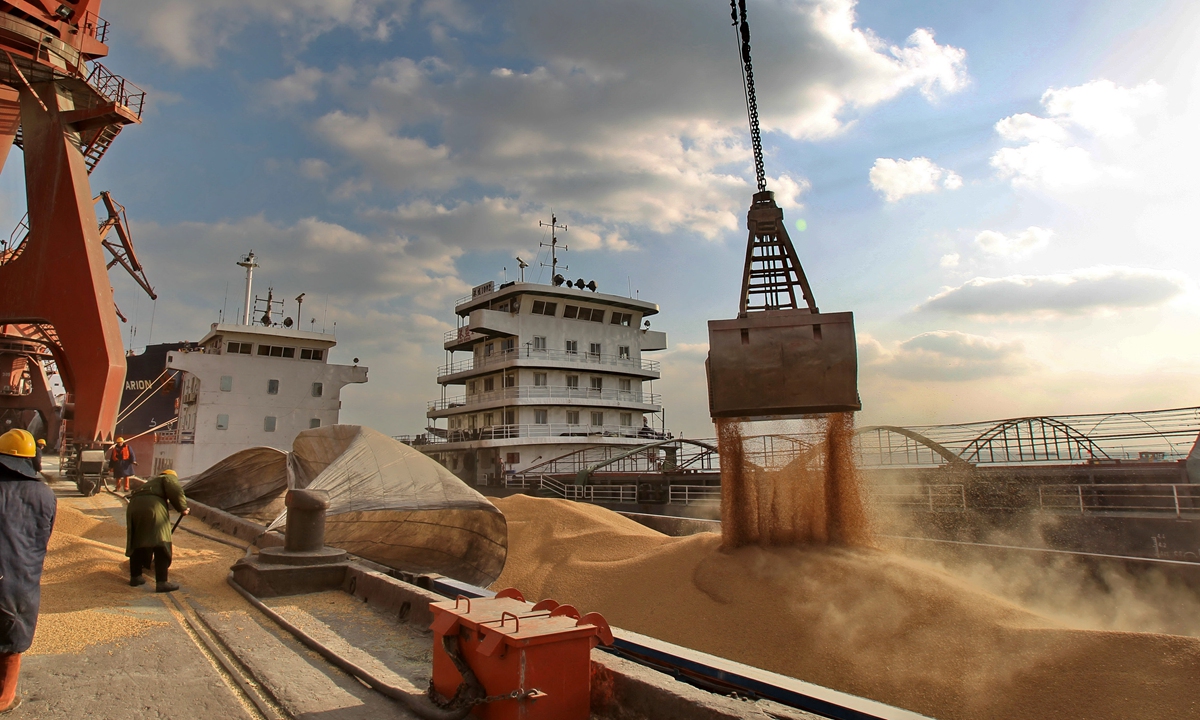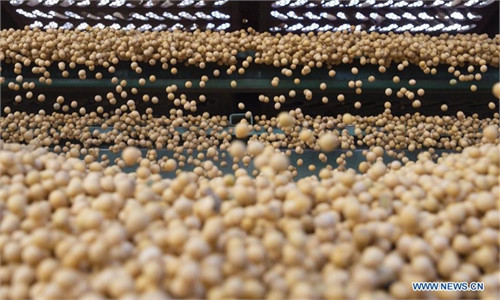China to auction 314,000 tons of imported soybeans in effort to stabilize market as prices rocket

Imported soybeans are loaded at the port of Nantong, East China's Jiangsu Province. Photo: VCG
China's National Grain Trade Center will sell 314,000 tons of imported soybeans through competitive bidding on May 13, the trade center announced on Friday. Analysts said the move will expand domestic soybean supplies and stabilize the market at a time when global soybean prices have soared to record highs amid the Russia-Ukraine conflict, which has hit the supply of vegetable oils.
This came as China's Vice Premier Hu Chunhua conducted an inspection tour at Heihe, Northeast China's Heilongjiang Province, a major agricultural production hub, on Thursday and Friday, during which he called for a further increase in soybean production and improved self-sufficiency.
According to the announcement, the imported soybeans were added to the national reserves in 2019. Li Guoxiang, a research fellow at the Rural Development Institute under the Chinese Academy of Social Sciences, told the Global Times on Friday that the auction has been a "rare move" in recent years to adjust supplies for the benefit of agricultural firms and processing enterprises.
"There were some soybean stock sales in recent years, but most were for turnover as some stocks would expire after a couple of years," Li explained.
The stockpile release comes after global soybean oil prices reached an all-time high, posing potential risks to global agricultural security. Soybean oil rose to a record 86.69 cents a pound in Chicago at the end of last month, Bloomberg reported.
Russia and Ukraine jointly account for 76 percent of the global exports of sunflower seed oil - one of the world's major vegetable oils. In April, the world's largest vegetable oil shipper Indonesia announced a ban on palm oil exports, further choking global supply.
To ensure domestic supply, China also released a number of policy support measures this year to expand the cultivation of soybean and oil crops. According to an action plan released in April, China plans to plant more than 973,300 hectares of soybeans and 300,000 hectares of oil crops including rapeseed, sunflower and peanuts at State-owned farms. The yield of soybean and oil crops is expected to rise by 2 percent.

